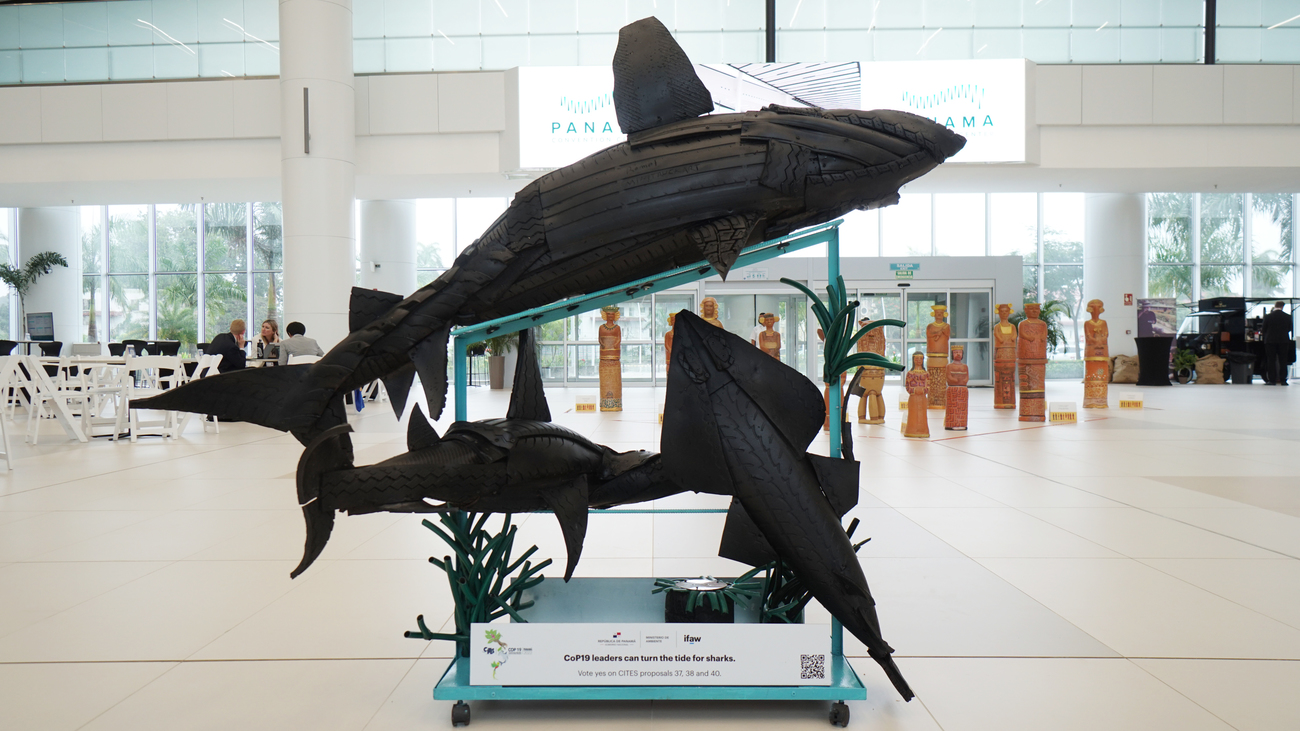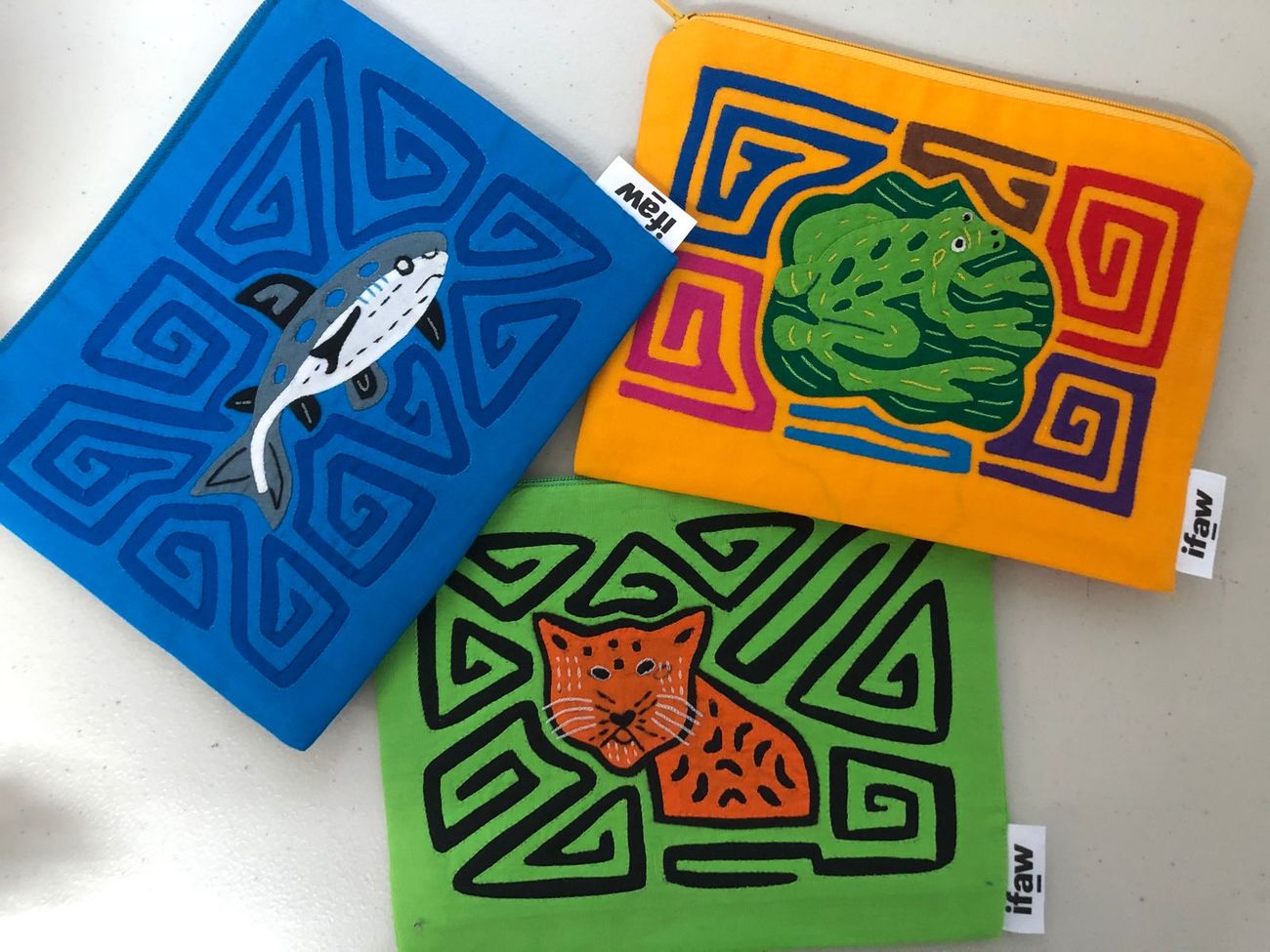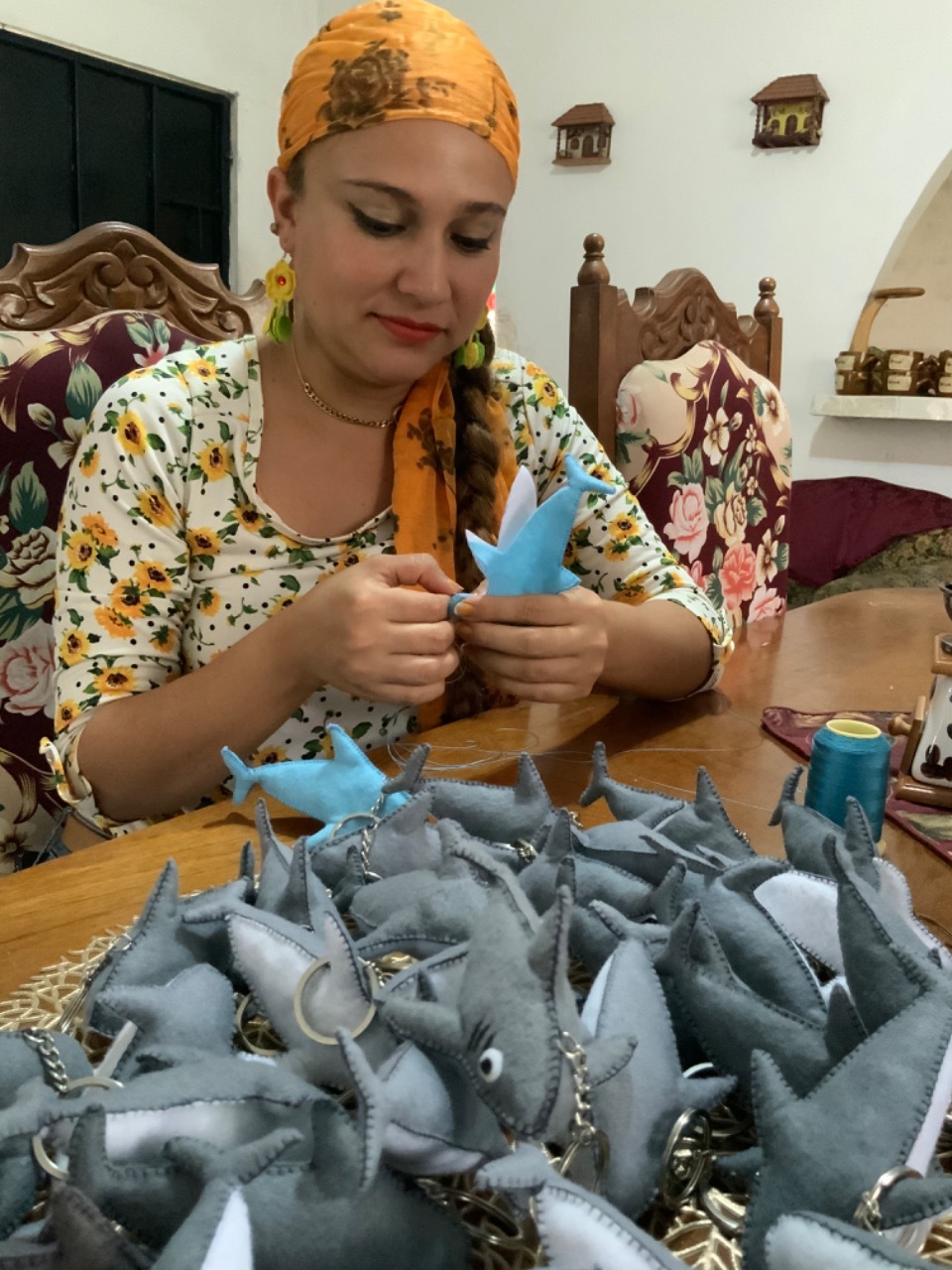Policy Conventions & Agreements - Global
Protection for wildlife & habitats is preserved in global agreementslocal artists showcase animals and culture at CITES in Panama
local artists showcase animals and culture at CITES in Panama
IFAW promotes community engagement wherever we are in the world, and the 19th Conference of the Parties (CoP) of the Convention on International Trade in Endangered Species of Wild Fauna and Flora (CITES) is no exception!

shark sculpture made from recycled materials
Have you spied a sculpture made from recycled materials in the Panama Convention Center hallways?
Local Panamanian artist Romel Bravo is 26 years old. He was born in the Capira province of Panama Oeste, with the special ability and creativity to imagine and convert what most people think of garbage and metal scraps into art. Before you, you’ll see a grey reef shark intertwined with a hammerhead shark, swimming alongside a guitarfish. Each of these species represents one of three proposals on the agenda this November as Member Parties vote to secure vital protections for nearly 100 shark species in total.
The sculpture uses sharks as its focal point, reminding us of their significance as top predators and keystone and umbrella species across multiple ecosystems. In addition, using tires, scrap metal and other discarded junk, Romel recreates a coral reef and additional species who live alongside sharks in these ecosystems.
Inspired by classic cars, Romel began his first creative endeavors in 2017. In 2021, it turned into a passion project as he began his Recycled Park project where he carved out his own space in a natural setting to exhibit his work and dreamt of one day turning his venture into a tourist venue where people could visit to learn about the importance of re-use and recycling.
Romel enjoys riding his bike in the streets of his community while looking for materials to create his pieces of art, sourcing all types of materials like tires, electronics and appliances such as refrigerators, computers, televisions and other scraps of iron, brass and plastics.
Diagnosed with autism at the age of three, Romel's journey towards comprehension, tolerance and inclusion hasn't been easy. However, he feels autism has made him more persistent in following his artistic goals.

mola purse crafted by Indigenous Guna women
On-site at CITES CoP19, you may also spy a hand-embroidered mola purse. Molas are traditional pieces of artwork of the Indigenous Guna women that are designed in geometrical shapes and forms and sewn with a complex layering of panels in a reverse applique. They are often inspired by flowers, birds and marine and terrestrial animals. It is a tradition that is passed on through generations of Guna women within their families.
This particular mola purse has been crafted by the hands of Guna women who have received—through the Panama Association of Professional Artisans—aid to develop entrepreneurial skills and promote their work. Depending on the complexity of the design, it can take a few days to few months to craft one single piece. For this reason, each mola purse is a unique work of art.
Molas are symbolic for the Guna´s Indigenous people, and one of the most inherent forms of artistic expression they use to represent and identify Guna culture and traditions. As in other cultures around the world, this textile art has surpassed the barriers of local art and souvenirs and also features in renowned fashion collections across the region.

coin purse and keychains
The coin purse on display at CITES CoP19 was handcrafted by Maria Souzzo, a Panamanian artisan, policewoman and seamstress. Maria displays her creativity and supplements her family’s earnings by crafting garments and products that represent folklore. The paruma used to make this purse is the traditional fabric used by Emberá women to make skirts. The vibrant colors, shapes and patterns symbolize the flora and fauna of the country. Each garment exhibits a completely unique pattern. In recent years, these fabrics have found their way onto fashion runways.
The keychains, also on display, were handcrafted by a group of six who are part of a program called “Women Taking Action for Felines,” which is part ECOGRAFE Panama—a project that supports women in communities to develop their artisanal talents to supplement their family finances, promotes gender equality within conservation projects and educates communities about the biodiversity and conservation of felines.
The crochet and felt designs, made exclusively for IFAW, highlight the crystal frog, the jaguar and sharks as flagship species that remind us of the need to champion sustainable practices to maintain healthy populations in the wild.
Related content
Every problem has a solution, every solution needs support.
The problems we face are urgent, complicated, and resistant to change. Real solutions demand creativity, hard work, and involvement from people like you.